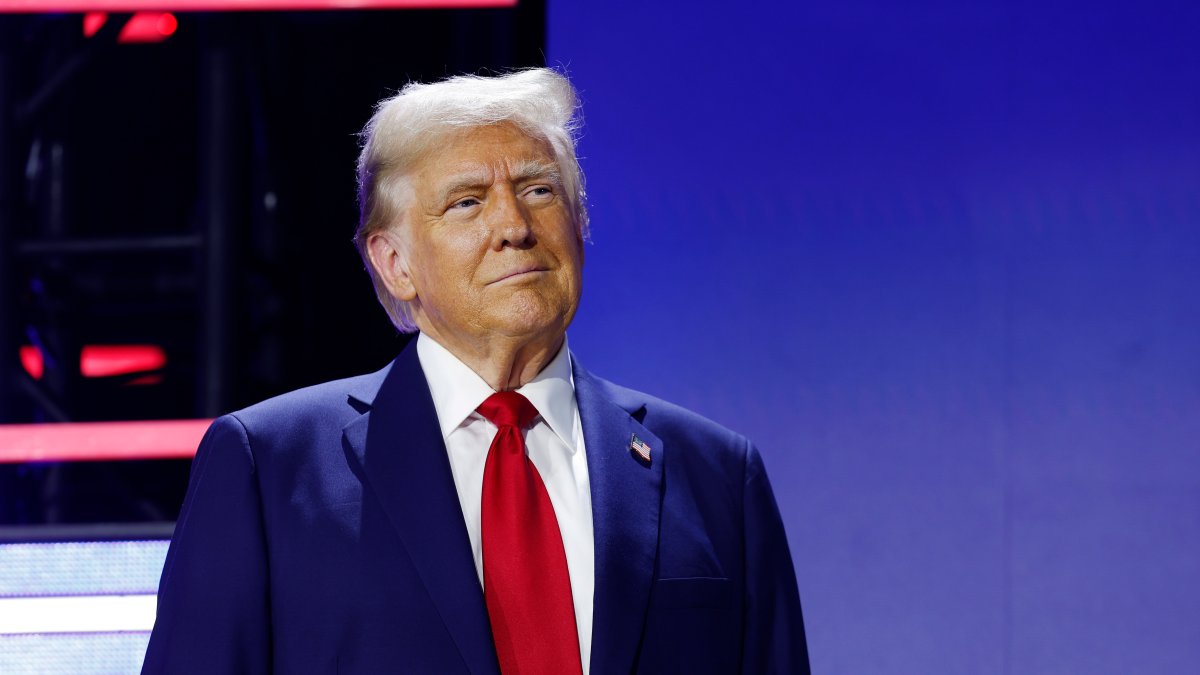The Return Of Trump Tariffs: A Looming Threat To Europe

Table of Contents
Historical Context: The Trump Tariffs and their Impact
The Trump administration's imposition of tariffs, notably on steel and aluminum imports, significantly impacted global trade. These import tariffs, announced in 2018 under Section 232 of the Trade Expansion Act of 1962, citing national security concerns, targeted numerous countries, including members of the European Union. These actions ignited a trade war, with the EU retaliating with its own tariffs on US goods.
The negative consequences for European businesses were substantial:
- Increased import costs for raw materials: Higher tariffs on steel and aluminum directly increased production costs for numerous European industries reliant on these materials, impacting profitability and competitiveness.
- Reduced competitiveness in global markets: Increased production costs made European goods less competitive internationally, leading to lost market share and reduced export revenues.
- Job losses in affected industries: Businesses facing higher costs were forced to cut back on production, resulting in job losses across various sectors, particularly in manufacturing.
- Retaliatory tariffs from the EU: The EU's response, imposing its own tariffs on US goods, further exacerbated the negative impacts, creating a cycle of trade restrictions.
The economic repercussions were felt on both sides of the Atlantic, dampening global economic growth and harming consumer confidence. The uncertainty surrounding US trade policy added to the instability.
Potential Triggers for a Tariff Resurgence
Several factors could trigger a renewed imposition of Trump-style tariffs:
- Increased protectionist sentiment in the US: A resurgence of protectionist sentiment within the US, driven by political pressure or economic anxieties, could lead to renewed calls for trade restrictions.
- Concerns over national security and strategic industries: National security concerns, particularly regarding critical infrastructure and technology, could be invoked to justify new tariffs on specific imports.
- Trade disputes related to specific sectors: Disputes over agricultural subsidies, intellectual property rights, or other trade practices could escalate into broader tariff battles.
- Political pressures and lobbying from domestic industries: Powerful domestic industries facing competition from imports may lobby for protectionist measures, influencing government policy.
Current political and economic uncertainties, such as geopolitical tensions and supply chain disruptions, could increase the risk of a resurgence of protectionist trade policies. The potential for renewed trade disputes remains high.
Sectors Most Vulnerable to Renewed Tariffs
Several European industries remain highly susceptible to increased tariffs:
- Automotive manufacturing: The automotive sector relies heavily on imported steel and aluminum, making it particularly vulnerable to increases in import tariffs.
- Steel and aluminum production: European steel and aluminum producers already faced challenges during the previous trade war and would be disproportionately affected by renewed tariffs.
- Agricultural products (e.g., wine, cheese): Agricultural exports from the EU to the US are sensitive to tariffs, potentially leading to significant losses for producers and exporters.
- Machinery and equipment: Many machinery and equipment manufacturers rely on imported components, making them vulnerable to increased input costs.
Companies like Volkswagen, ArcelorMittal, and numerous smaller agricultural producers would face significant risks in such a scenario. Specific regions heavily reliant on these sectors would also experience considerable economic hardship.
The EU's Response Strategies
The EU has several potential responses to renewed US tariffs:
- Retaliatory tariffs: Imposing retaliatory tariffs on US goods remains a viable option, although it would likely further escalate the trade conflict and hurt both economies.
- Trade negotiations and diplomatic efforts: The EU might attempt to negotiate with the US to de-escalate tensions and resolve trade disputes through diplomatic channels.
- Support for affected industries: Providing financial assistance and other forms of support to European industries affected by tariffs could mitigate the negative consequences.
- Strengthening trade relationships with other partners: Diversifying trade relationships and seeking new markets can lessen the EU's dependence on the US market.
The effectiveness of each strategy depends on various factors, including the scale and scope of the new tariffs and the willingness of both sides to compromise. The EU’s ability to effectively respond would hinge on its ability to build consensus within its member states and to pursue multilateral solutions through organizations like the WTO.
The Role of International Organizations
International organizations like the World Trade Organization (WTO) play a crucial role in mediating trade disputes. The WTO's dispute settlement mechanism provides a framework for resolving trade disagreements through negotiation and arbitration. However, the effectiveness of the WTO is limited by the willingness of member states to abide by its rulings. The potential for a renewed trade war highlights the need for strengthened multilateral cooperation and adherence to the rules-based international trading system. Effective action by the WTO in mediating such conflicts remains crucial in preventing a full-blown trade war.
Conclusion
The threat of a return of Trump-style tariffs presents significant risks to the European economy. Sectors like automotive manufacturing, steel production, and agriculture are particularly vulnerable to increased import costs and reduced competitiveness. The potential for retaliatory tariffs and economic disruption underscores the need for proactive strategies from both the EU and the US to prevent a return to protectionist policies. Understanding the potential impact of these tariffs is the first step towards developing effective strategies to protect the European economy and foster a more stable transatlantic trade relationship. The threat of a return of Trump tariffs demands urgent attention. Stay informed about developments in US trade policy and the potential impact of Trump tariffs on the EU.

Featured Posts
-
 Tucows Leadership Changes Announced New Director Nominations And Departing Member Recognition
May 13, 2025
Tucows Leadership Changes Announced New Director Nominations And Departing Member Recognition
May 13, 2025 -
 Kanika House The Delhi Bungalow Where Br Ambedkar Drafted The Indian Constitution
May 13, 2025
Kanika House The Delhi Bungalow Where Br Ambedkar Drafted The Indian Constitution
May 13, 2025 -
 Navi Mumbai Corporations Summer Safety Campaign Aala Unhala Niyam Pala
May 13, 2025
Navi Mumbai Corporations Summer Safety Campaign Aala Unhala Niyam Pala
May 13, 2025 -
 The Value Of Privacy Scarlett Johanssons Perspective On Protecting Her Children
May 13, 2025
The Value Of Privacy Scarlett Johanssons Perspective On Protecting Her Children
May 13, 2025 -
 Foto Ribuan Pekerja Terjebak Jaringan Penipuan Online Myanmar Warga Indonesia Jadi Korban
May 13, 2025
Foto Ribuan Pekerja Terjebak Jaringan Penipuan Online Myanmar Warga Indonesia Jadi Korban
May 13, 2025
